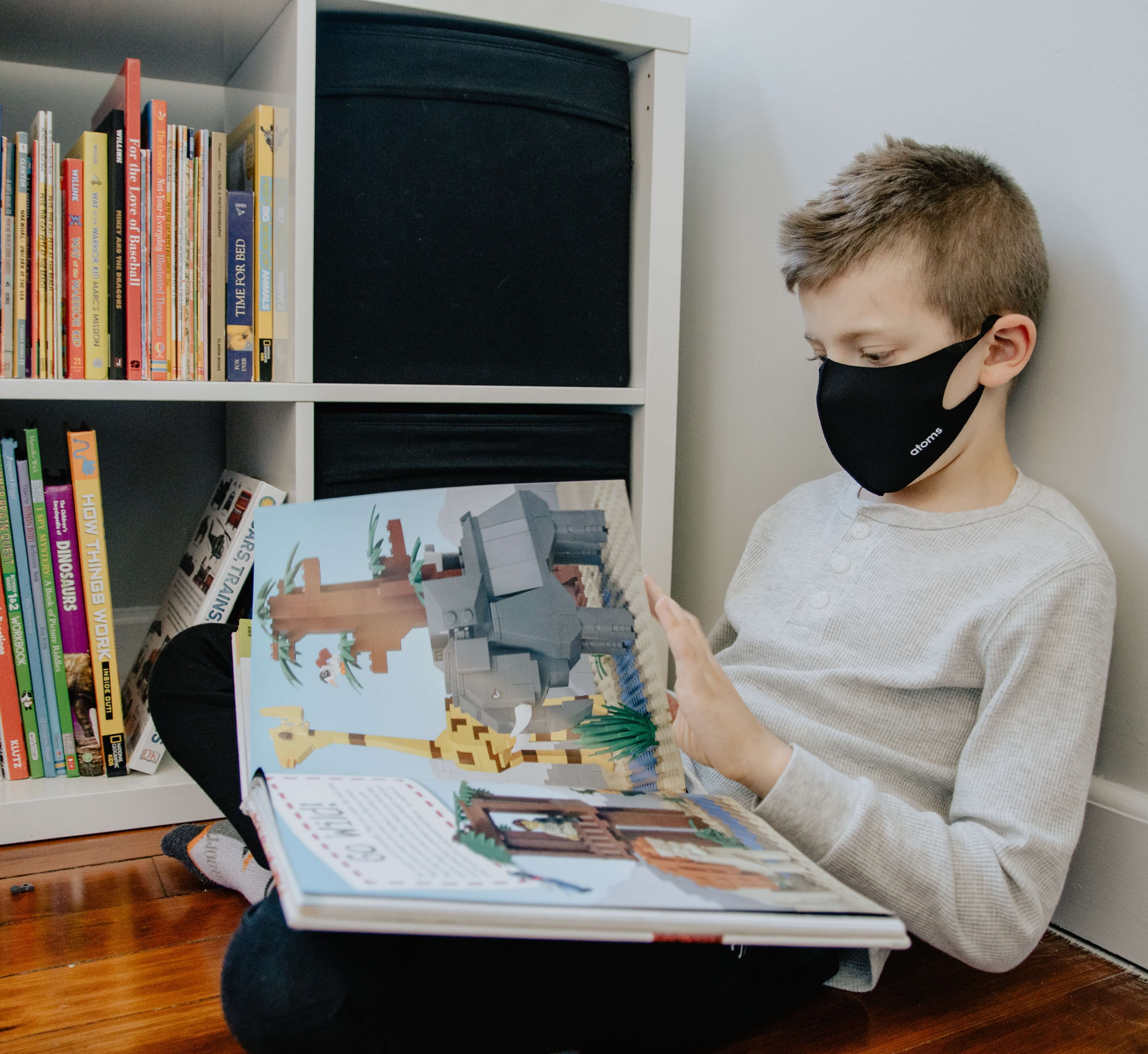
What Is a Molecular Covid-19 Test
The Covid-19 pandemic has taught us many lessons. One such lesson is that diagnostics testing is key to battling infectious diseases.
One of the highly recommended Covid-19 diagnostic tests is the molecular Covid-19 test. Molecular testing for SARS-CoV-2 often uses Real-time Polymerase Chain Reaction (RT-PCR) process, which is why the test is sometimes referred to as a molecular PCR test.
The Covid-19 molecular swab test works by determining if the unique genetic material of SARS-CoV-2 is actively present in a patient’s sample.
What Is a Molecular Covid-19 Test?
Currently, there are two primary Covid-19 diagnostic tests, the rapid antigen tests like the FlowFlex antigen test and the molecular tests, which are the focus of this article.
Molecular tests, which are also referred to as nucleic acid, PCR, or RNA tests, work by checking the nucleic acid or the RNA component of the Covid-19 virus.
The most commonly used type of molecular test for Covid-19 is the PCR (polymerase chain reaction) test. Which brings us to the frequently asked question: is PCR a molecular test? The answer is yes, PCR is one of the Covid-19 molecular tests, and it serves as the mainstay of Covid-19 molecular testing.
PCR molecular testing works by amplifying the nucleic acid in your sample, making it easier for the test to detect the presence of the Covid-19 virus. The advantage of this test is that it’s highly sensitive and accurate. It can also run hundreds of samples at once.
One disadvantage of this test is that it requires special equipment for sample analysis. This means that samples need to be taken to a laboratory for analysis. Due to this, the results of this test aren’t instant and often take a few hours or days to be ready.
In addition to the PCR molecular test, other types of tests that are molecular and used for SARS-CoV-2 testing include:
- Reverse transcription loop-mediated isothermal amplification (RT-LAMP) test - This test amplifies the genetic material of the virus. It can be performed at a single temperature, and the results are also available within minutes. Just like the RT-PCR, it’s also highly sensitive.
- Recombinase Polymerase Amplification (RPA) - This molecular testing method detects the genetic material of the virus with the use of the recombinase enzyme. The enzyme pulls apart the DNA strands and then copies the viral genes. Just like the RT-LAMP test, the RPA test also requires a single temperature, and it’s also highly sensitive.
- CRISPR-based diagnostics test -This molecular diagnostic testing method uses a cleaving action to cut a specific section of the SARS-CoV-2 RNA. The result is a visual sign that shows if the virus is present. The test provides results within minutes, and it’s very sensitive.
- Multiplex Assay POCR test - This is a more efficient molecular test that can be used to test multiple viruses, including Influenza, Covid-19, and respiratory syncytial virus
How Do Molecular Tests Work?
Molecular tests work by detecting the genetic material of a virus. The genetic material of the SARS-CoV-2 infection is composed of ribonucleic acid (RNA). Molecular tests use a polymerase chain reaction process to convert the virus RNA into DNA. The DNA is also amplified or copied so that it can be enough to be detected by the test.
Here’s a detailed look at how molecular testing works:
- Collection of the genetic sample - The first step involves taking a sample from the nose or throat area. The sample can be taken in a testing center or at home. The sample is then sealed and taken to a laboratory for screening.
- Extraction - The second step involves the extraction of genetic material from the throat or nasal swab. In this process, different chemicals are added to the sample to help detect the type of virus present.
- Copying of DNA from RNA - Since the SARS-CoV-2 infection carries its genetic code as RNA, the RNA needs to be converted into DNA. This is made possible by combining the RNA collected with an enzyme and nucleotides, which are the chemical building blocks for DNA.
- Amplification of DNA - The next step involves the amplification or copying of the DNA through the polymerase chain reaction process. During the reverse transcription polymerase chain reaction process, the DNA strands are unzipped, and amplification primers, enzymes, and other special chemicals are added to help replicate the DNA.
- Analysis of the result - The last step in molecular Covid-19 testing is the analysis of the amplification process results. If the DNA is copied, then it means SARS-CoV-2 infection is present, and the test is concluded to be positive. However, if the DNA isn’t amplified, then SARS-CoV-2 isn’t present, and the test results are interpreted as negative
The Covid-19 molecular test can run numerous cycles of the amplified nucleic acids, which makes it very sensitive and able to detect the virus even if the viral RNA levels are very low in your sample. This characteristic is what enables the test to detect the SARS-CoV-2 virus even in asymptomatic patients.
A positive molecular amplification test indicates that the person has Covid-19. In case the test doesn’t detect SARS-CoV-2 in the sample, the test result will be negative. In very rare instances, molecular tests may give false negatives. This often happens due to a low-quality sample or if the testing instructions weren’t followed correctly.
What Is Needed to Get Tested?
Molecular tests require urine, feces, and blood samples for testing.
However, for a respiratory infection such as Covid-19, a nasal or throat swab is required. Some Covid-19 molecular tests also use saliva samples.
In case the molecular test requires a nasal swab, a long Q-tipped swab will be inserted about two inches into your nasal cavity and swirled around for 10-15 seconds. The swab will then be removed, and the procedure will be repeated in your other nostril. Once done, the sample is sealed and taken to the lab for testing. Most people prefer nasal swabs as they’re fast and less invasive than throat swabs.
Throat swabs are often done by healthcare providers. The person conducting the test will insert a long swab through your mouth to the back of your throat. They will twirl it around for a few seconds to enable the soft bristles to collect a sample. Although it shouldn’t hurt, the throat swab can be uncomfortable and may sometimes trigger a gag reflex. However, the test only takes a few seconds.
The saliva test is pretty straightforward as you’ll need to spit several times into a provided funnel that comes attached to a tube. Once you’re done, the tube will be sealed and sent to the lab for analysis. Although saliva samples may be more comfortable and less invasive to produce than nasal or throat swabs, they aren’t suitable for those with low saliva production.
Can You Take a Molecular Covid-19 Test at Home?
Yes, you can take a molecular COVID-19 test at home. The benefit of taking a Covid-19 molecular test at home is that it’s convenient, fast, and easy. Besides, at-home PCR molecular tests have higher degrees of sensitivity and accuracy than Healgen test kits and other rapid antigen tests.
Another instance when at-home PCR molecular testing would be ideal is if you have been recently exposed to the virus or if you want to do a test before visiting someone vulnerable to the virus, such as the sick or the elderly.
Most at-home PCR kits require you to take the sample and send it to a laboratory for analysis. Self-testing molecular kits are also available that allow one to test and analyze the sample at home without the need to send it to the lab.
Covid-19 molecular tests can also be accessed from the care sites, such as the following:
- Community-based testing sites
- Hospitals
- Pharmacies
- Health clinics
- Urgent care clinics
Tests done at a point-of-care center can yield results in 15 to 45 minutes. However, results for samples that need to be sent to the lab may take a few days.
Why Is Molecular Testing Important?

Molecular Covid-19 tests are considered to be the “gold standard” for Covid-19 testing, as they’re highly accurate. In one study, it was found that molecular tests correctly diagnosed Covid-19 cases in 95.1 percent of the testing samples.
Compared to a rapid antigen test, a Covid-19 molecular test is more sensitive and can therefore be used to detect a Covid-19 infection at an early stage. The test is also used to confirm the results of a lateral flow home test kit or any other home-use rapid antigen test. A molecular Covid-19 test can also be used to detect remnants of the virus even after one has recovered from the infection. The sensitivity of the test also means that it’s less likely to give false negatives.
Additionally, a molecular test that turns out to be positive is enough to diagnose Covid-19, especially if the person has Covid-19 symptoms. Results from molecular testing are also important as they help in decision and policy-making when it comes to life-threatening diseases like Covid-19.
Conclusion
In closing, there are different tests for Covid-19. Molecular Covid-19 tests are diagnostic tests used to determine if one has an active Covid-19 infection. Molecular testing works by copying bits of the virus DNA material so that the infection can be detected using the test. Covid-19 molecular tests are considered to be the gold standard of Covid-19 testing as they’re very sensitive and highly accurate.



